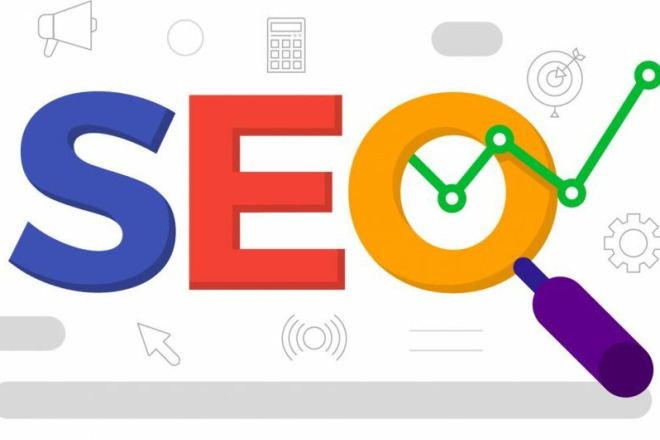In today’s digital-first world, getting found on search engines is no longer optional—it’s essential. With millions of businesses competing for attention, ranking higher in search results can make or break your online presence. Fortunately, proven SEO techniques can help boost your organic ranking, drive qualified traffic, and deliver long-term growth.
This article explores the most effective strategies, from keyword research and backlink building to optimizing for user intent and measuring SEO ROI.
Why Organic Rankings Matter More Than Ever
Organic traffic remains one of the most sustainable and cost-effective sources of visitors for businesses. Unlike paid ads, organic rankings don’t disappear once your budget runs out. Instead, they create a continuous flow of targeted traffic over time.
Higher rankings also establish trust and authority. When potential customers see your website appear at the top of Google, they perceive your business as more credible than competitors buried on page two.
1. Conduct Thorough Keyword Research
Keyword research is the foundation of every successful SEO campaign. It’s not just about finding words people type into Google—it’s about understanding search intent. Choosing the right keywords ensures you’re targeting audiences that are ready to engage with your content, product, or service.
For small businesses, this step is especially crucial. Investing time into keyword research for small business can help you discover untapped opportunities and compete with bigger brands without overspending.
Tips for effective keyword research:
- Use tools like Google Keyword Planner, Ahrefs, or SEMrush.
- Look for long-tail keywords with lower competition but high intent.
- Analyze what keywords your competitors are ranking for.
- Group keywords into topics for a more structured content plan.
2. Optimize On-Page SEO
Once you’ve identified the right keywords, the next step is optimizing your on-page elements. This ensures that search engines understand your content and users enjoy a smooth experience.
Key on-page SEO tactics include:
- Writing compelling meta titles and descriptions.
- Using header tags (H1, H2, H3) to structure content logically.
- Adding keywords naturally in the first 100 words of your page.
- Optimizing images with alt text.
- Improving page load speed and mobile responsiveness.
Remember, user experience is part of SEO. If visitors leave your site quickly, it signals to Google that your content might not be relevant.
3. Build High-Quality Backlinks
Backlinks are one of Google’s top ranking factors. However, not all backlinks are created equal. High-quality, relevant links signal to search engines that your website is trustworthy and authoritative.
Understanding different types of backlinks can help you build a diverse and natural link profile. For instance, editorial backlinks from reputable websites carry more weight than random directory links.
Best practices for backlink building:
- Guest post on industry-relevant blogs.
- Build relationships with influencers in your niche.
- Create link-worthy content such as infographics or original research.
- Avoid spammy or low-quality backlinks that may trigger penalties.
4. Focus on Content That Solves Problems
Google rewards content that genuinely answers user queries. Instead of stuffing your page with keywords, focus on delivering value. Think about your audience’s pain points and how you can solve them.
For example:
- A law firm might publish guides on legal rights.
- A fitness coach might share detailed workout routines.
- An e-commerce store could write product comparison blogs.
By addressing real-world questions, you not only rank higher but also establish yourself as an authority in your industry.
5. Measure SEO ROI
One of the biggest mistakes businesses make is failing to measure their SEO efforts. Without tracking, it’s impossible to know whether your strategies are paying off.
Understanding SEO ROI helps you connect rankings to revenue. When you track metrics like conversions, sales, and cost savings, you’ll see the true value of SEO beyond traffic numbers.
Some important metrics to measure include:
- Organic traffic growth.
- Conversion rates from organic search.
- Customer lifetime value (CLV).
- Cost per acquisition (CPA) compared to paid channels.
6. Leverage Technical SEO
While content and backlinks get most of the spotlight, technical SEO plays a crucial role in ranking. Without a solid technical foundation, your website may struggle to perform even with great content.
Key technical SEO areas to optimize:
- XML sitemaps for easier indexing.
- Clean URL structures.
- HTTPS security.
- Fixing crawl errors and broken links.
- Structured data (schema markup) for rich snippets.
These behind-the-scenes improvements ensure that search engines can crawl, index, and rank your site effectively.
7. Work With an SEO Expert
SEO is a long-term strategy that requires expertise, patience, and continuous adaptation. Algorithms change frequently, and keeping up can be overwhelming for business owners. This is where working with an seo expert can make a big difference.
An experienced professional brings insights, proven strategies, and tools to accelerate your growth. Whether you’re struggling with keyword targeting, backlink acquisition, or technical fixes, an SEO expert can help streamline the process and maximize results.
Final Thoughts
Boosting your organic ranking is not about quick fixes or shortcuts. It’s about building a sustainable SEO strategy that combines keyword research, high-quality content, backlinks, technical optimization, and performance tracking.
By investing in these proven techniques, your business can enjoy long-term visibility, attract targeted traffic, and generate consistent revenue.
The digital landscape is competitive, but with the right strategies—and the guidance of a trusted SEO partner—you can secure your place at the top of search results.




